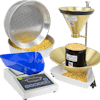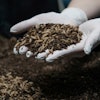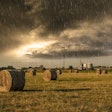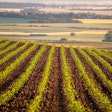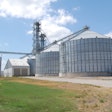Transcription of Feed & Grain Chat with Jess McCluer, vice president, safety and regulatory affairs for NGFA.
Elise Schafer, editor of Feed & Grain: Hi everyone, welcome toFeed & Grain Chat. I'm your host Elise Schafer, editor ofFeed & Grain.
This edition ofFeed & Grain Chatis brought to you by WATT Global Media andfeedandgrain.com. Feedandgrain.com is your source for the latest news, product and equipment information for the grain handling and feed manufacturing industries.
Today, I'm joined on zoom by Jess McCluer, vice president safety and regulatory affairs for the National Grain and Feed Association. He's here today to discuss Harvest Safety Week, a campaign that emphasizes grain handling safety at harvest time. Hi, Jess, how are you?
Jess McCluer, vice president, safety and regulatory affairs, for NGFA:Hi, Elise, how are you doing?
Schafer:Doing well. Thanks for coming on today.
McCluer:Well I appreciate the invitation.
Schafer:Before we get into the details about Harvest Safety Week, can you talk about some of the biggest worker safety issues at grain elevators during harvest?
McCluer:Sure, the harvest is a busy time of year for the grain, feed and processing industry. There's increased traffic, additional workers, demanding hours and obviously there's the challenges of Mother Nature. So that obviously includesheatduring that time of year, so I think that's one of the primary reasons we want to focus on heat injury and illness this year for our safety week.
Schafer:So tell me a little bit about NGFA’s Harvest Safety Week. How many years has this been going on, and what takes place that week?.
McCluer:So this is our fourth annual Harvest Safety Week and it’s going to be running from Aug. 22nd through the 26th. And the primary purpose is many of the issues that I discussed. We want to focus on what are the primary challenges and hazards during the harvest, we want to provide our members and non-members, as well — this is open to both NGFA members and non-members — and provide them with the information necessary to address these challenges that they face.
So, whether it be through PowerPoint, whether it be through podcasts, whether it be through safety tips, we want to make all this information available to them. And as previously mentioned, the primary focus is on the heat injury and illness hazards.
Schafer:When is Harvest Safety Week this year and can you share why heat illness is a big focus this time?
McCluer:Sure, this year Harvest Safety Week is scheduled from Aug. 22nd through the 26th. And the primary issue for this year is heat injury and illness. And the reason why is that the Occupational Safety and Health Administration came out with a National Emphasis Program in April, and with that emphasis program, grain handling facilities are one of the targeted industries as part of their inspection program.
What the National Emphasis Program is designed to do is obviously put more of an emphasis on facilities and their programs to deal with heat injury and illness, which we'll talk about in greater detail during Harvest Safety Week.
Schafer:Great. Does NGFA offer any training on the dangers of heat illness and can you share some of those tips?
McCluer:What we're working on doing during the Harvest Safety Week is we're going to have representatives from OSHA's director of enforcement programs and director of standards and guidance. They'll be talking about their National Emphasis Program and the rulemaking process they're going through and heat injury and illness.
We're going to have an attorney that is going to be talking about that, providing more detail about what facilities can do to address that, and we're also going to have a panel discussion with NGFA members to talk about what are the best practices that they have at their companies in their facilities to deal with the heat illness and injury hazards.
Schafer:Now, harvest is always a busy time for grain handlers and a record wheat and corn crop are projected again, so what is your number one piece of advice that you hope viewers take away to keep themselves safe this harvest season?
McCluer:在丰收的季节,很明显,你想make sure that all the workers are following what their company safety policies are — that’s number one. Obviously in conjunction with harvest safety, we want to make sure that facilities have some type of program in place to address heat injury and illness hazards, so we want to make sure that they're aware of what OSHA is looking for and obviously want to make sure that they're aware of what other companies are doing to address these potential hazards.
Schafer:Thank you, Jess, for coming on today with tips to prevent heat illness and information aboutHarvest Safety Week.
McCluer:Thank you.
Schafer:And if you'd like more information, visitngfa.org/safety. That's all for thisFeed & Grain Chat. Thanks for joining me and I hope to see you next time!
热相关疾病可以为tho构成很大的威胁se who work in and around nature’s elements. In 2019, 43 work-related deaths were reported in the U.S. due to environmental heat exposure, with many others sickened and/or hospitalized.
To address thedangers of heat illness in the workplace— including in grain handling facilities — OSHA launched a new enforcement program in early 2022. The enforcement program is the focal point of this year’sHarvest Safety Week, hosted by theNational Grain and Feed Association.
Harvest Safety Week 2022 will emphasize the significance of this hazard and provide prevention resources daily through videos, presentations, webinars and email. Available to both NGFA members and non-members, anyone involved in grain handling is welcome tosign upand receive the free resources.
In thisFeed & Grain Chat, Jess McCluer, NGFA’s vice president, safety and regulatory affairs, stopped by to shareHarvest Safety Weekdetails and reasons why safety hazards can be heightened during harvest time.


